 A new British study that is published in British Journal of Nutrition shows that getting too little vitamin D during pregnancy has a negative effect on the social development and motor skills of the toddler. Vitamin D is believed to play a role in brain development. It is vital for the pregnant mother to pay careful attention to getting enough vitamin D all year round, as our modern lifestyle with indoor activities, our frequent use of sunscreen with high sun factor, being overweight, and having dark skin contribute to the widespread deficiency of this nutrient.
A new British study that is published in British Journal of Nutrition shows that getting too little vitamin D during pregnancy has a negative effect on the social development and motor skills of the toddler. Vitamin D is believed to play a role in brain development. It is vital for the pregnant mother to pay careful attention to getting enough vitamin D all year round, as our modern lifestyle with indoor activities, our frequent use of sunscreen with high sun factor, being overweight, and having dark skin contribute to the widespread deficiency of this nutrient.
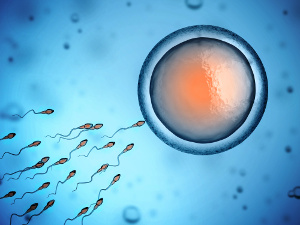 Impaired sperm quality if one of the major reasons for involuntary infertility. Studies show that oxidative stress, an imbalance between harmful free radicals and protective antioxidants, causes damage to sperm cells. In a review article that is published in Reproductive Sciences, a group of researchers look closer at different molecular mechanisms and how vitamins C, E, selenium, zinc, and coenzyme Q10 plus other antioxidants protect the vulnerable sperm cells.
Impaired sperm quality if one of the major reasons for involuntary infertility. Studies show that oxidative stress, an imbalance between harmful free radicals and protective antioxidants, causes damage to sperm cells. In a review article that is published in Reproductive Sciences, a group of researchers look closer at different molecular mechanisms and how vitamins C, E, selenium, zinc, and coenzyme Q10 plus other antioxidants protect the vulnerable sperm cells.
 After giving birth, the mother’s adaptability and resources are put to the test. Also, the mother’s “baby brain” tends to take over. Unfortunately, many new mothers get the baby blues, and around 10 percent develop an actual postpartum depression that requires immediate attention. It is important to focus on the underlying causes that include the course of the delivery plus hormonal, biological, social, and emotional changes.
After giving birth, the mother’s adaptability and resources are put to the test. Also, the mother’s “baby brain” tends to take over. Unfortunately, many new mothers get the baby blues, and around 10 percent develop an actual postpartum depression that requires immediate attention. It is important to focus on the underlying causes that include the course of the delivery plus hormonal, biological, social, and emotional changes.
- and the upper safe limit makes no sense
 There really is no need to have an upper safe intake limit for folic acid, and we ought to enrich flour with this nutrient to prevent children from being born with potentially disabling or life-threatening brain or spinal cord defects. This is part of the conclusion of a new study from Queen Mary University of London, and it supports an earlier study from Aarhus University in Denmark. Folic acid deficiencies, which are rather common, may lead to fatigue, poor memory, dementia, and a number of other health problems later in life. It is therefore important that we focus on this essential nutrient.
There really is no need to have an upper safe intake limit for folic acid, and we ought to enrich flour with this nutrient to prevent children from being born with potentially disabling or life-threatening brain or spinal cord defects. This is part of the conclusion of a new study from Queen Mary University of London, and it supports an earlier study from Aarhus University in Denmark. Folic acid deficiencies, which are rather common, may lead to fatigue, poor memory, dementia, and a number of other health problems later in life. It is therefore important that we focus on this essential nutrient.
 A new study links thyroid disorders to female infertility. At the same time, it is known that selenium, an essential micronutrient, is required for normal functioning of the thyroid gland. Modern diets are depleted of selenium and the question is: Could selenium supplements be a good place to begin for infertile couples before embarking on expensive IVF therapy?
A new study links thyroid disorders to female infertility. At the same time, it is known that selenium, an essential micronutrient, is required for normal functioning of the thyroid gland. Modern diets are depleted of selenium and the question is: Could selenium supplements be a good place to begin for infertile couples before embarking on expensive IVF therapy?
 There are several reasons why pregnant women have an increased need for folic acid. Overweight women should even pay special attention, as folic acid reduces their risk of having babies who are also overweight. This was seen in a new American study that got published in JAMA Pediatrics.
There are several reasons why pregnant women have an increased need for folic acid. Overweight women should even pay special attention, as folic acid reduces their risk of having babies who are also overweight. This was seen in a new American study that got published in JAMA Pediatrics.
 Folic acid plays a role in tissue growth and fetal development during pregnancy. A new study that was presented at an annual congress for British psychologists in Brighton shows that folic acid supplements may even improve the child’s psychological development. This is vital for the child’s ability to handle his or her own feelings and managing socially.
Folic acid plays a role in tissue growth and fetal development during pregnancy. A new study that was presented at an annual congress for British psychologists in Brighton shows that folic acid supplements may even improve the child’s psychological development. This is vital for the child’s ability to handle his or her own feelings and managing socially.
 Lack of selenium increases the risk of impaired fertility and complications in connection with pregnancy and birth. Because selenium deficiencies are rather common, both men and women should ideally make sure that they get enough of this essential trace element that is involved in various functions - right from conception to delivery.
Lack of selenium increases the risk of impaired fertility and complications in connection with pregnancy and birth. Because selenium deficiencies are rather common, both men and women should ideally make sure that they get enough of this essential trace element that is involved in various functions - right from conception to delivery.
 A new study reveals that children of mothers’ who lacked vitamin B12 during their pregnancy are at increased risk of metabolic diseases like type-2 diabetes. The study also shows that too little vitamin B12 may lead to abnormal levels and malfunctions of the hormone leptin, which signals satiety.
A new study reveals that children of mothers’ who lacked vitamin B12 during their pregnancy are at increased risk of metabolic diseases like type-2 diabetes. The study also shows that too little vitamin B12 may lead to abnormal levels and malfunctions of the hormone leptin, which signals satiety.
- and has a long-term effect on the maturation of a woman’s eggs
 It is well established that zinc is important for the maturation of the eggs in the fallopian tube during a woman’s menstrual cycle. However, a new American study has shown that zinc is involved in even earlier stages of the maturation of the eggs. A zinc deficiency therefore reduces the chance of the eggs being fertilized and dividing later on, which they are supposed to during pregnancy. Lack of zinc is rather common and may harm your fertility for several months to come.
It is well established that zinc is important for the maturation of the eggs in the fallopian tube during a woman’s menstrual cycle. However, a new American study has shown that zinc is involved in even earlier stages of the maturation of the eggs. A zinc deficiency therefore reduces the chance of the eggs being fertilized and dividing later on, which they are supposed to during pregnancy. Lack of zinc is rather common and may harm your fertility for several months to come.
 Premature infants have a higher risk of development disturbances. On a global scale, preterm delivery is the leading cause of death among children younger than five years of age. Pregnant women, who increase their intake of omega-3 fatty acidsby taking supplements of fish oil, are able to lower their risk of preterm delivery, according to a new Cochrane review article. Earlier studies show that increased intake of oily fish can also lower the risk of preterm delivery, but it is important that the expecting mother avoids eating predatory fish such as tuna and other types of fish that are likely to contain too much mercury.
Premature infants have a higher risk of development disturbances. On a global scale, preterm delivery is the leading cause of death among children younger than five years of age. Pregnant women, who increase their intake of omega-3 fatty acidsby taking supplements of fish oil, are able to lower their risk of preterm delivery, according to a new Cochrane review article. Earlier studies show that increased intake of oily fish can also lower the risk of preterm delivery, but it is important that the expecting mother avoids eating predatory fish such as tuna and other types of fish that are likely to contain too much mercury.
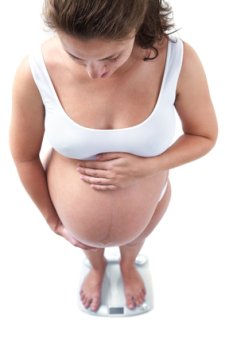 Overweight or obesity during pregnancy is linked to low vitamin D levels. This negatively affects the health of the expecting mother, and in the long run it increases the child's risk of weak bones, overweight, type-2 diabetes, and allergies.
Overweight or obesity during pregnancy is linked to low vitamin D levels. This negatively affects the health of the expecting mother, and in the long run it increases the child's risk of weak bones, overweight, type-2 diabetes, and allergies.
 Polycystic ovary syndrome (PCOS) is the leading cause of infertility and hormone disturbances in women of childbearing age. The condition is often a result of insulin resistance, an imbalance in the sugar metabolism that is typically accompanied by fatigue, abdominal obesity (apple-shaped body), overweight, and an increased risk of cardiovascular disease and type-2 diabetes. It makes perfect sense to stick with a blood sugar-stabilizing diet and to include a chromium supplement that increases insulin sensitivity and helps, indirectly, regulate the hormone balance. As a bonus effect, it becomes a lot easier to obtain and maintain your ideal weight.
Polycystic ovary syndrome (PCOS) is the leading cause of infertility and hormone disturbances in women of childbearing age. The condition is often a result of insulin resistance, an imbalance in the sugar metabolism that is typically accompanied by fatigue, abdominal obesity (apple-shaped body), overweight, and an increased risk of cardiovascular disease and type-2 diabetes. It makes perfect sense to stick with a blood sugar-stabilizing diet and to include a chromium supplement that increases insulin sensitivity and helps, indirectly, regulate the hormone balance. As a bonus effect, it becomes a lot easier to obtain and maintain your ideal weight.
 Impaired fertility and involuntary childlessness are common in the Nordic countries and there can be a number of reasons for these serious problems. However, according to a large Finnish study that is published in Nutrients, vitamin Ddeficiency, which is a widespread problem, may increase women’s risk of fertility problems and cause them to have a miscarriage.
Impaired fertility and involuntary childlessness are common in the Nordic countries and there can be a number of reasons for these serious problems. However, according to a large Finnish study that is published in Nutrients, vitamin Ddeficiency, which is a widespread problem, may increase women’s risk of fertility problems and cause them to have a miscarriage.
- but dietary and lifestyle changes make a difference
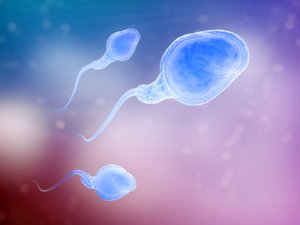 Approximately one in seven couple is childless. Although there can be many underlying causes, poor sperm quality is an increasing problem. It may be caused by a lack of certain nutrients and exposure to different environmental factors, but, fortunately, it possible to improve sperm quality and increase the chances of conception by means of relevant dietary adjustments and the use of specific supplements. New research shows that epigenetic factors (factors that affect the environment of the sperm cell) determine sperm health and are therefore crucial for activating the genes of the sperm cell so the fetus can develop.
Approximately one in seven couple is childless. Although there can be many underlying causes, poor sperm quality is an increasing problem. It may be caused by a lack of certain nutrients and exposure to different environmental factors, but, fortunately, it possible to improve sperm quality and increase the chances of conception by means of relevant dietary adjustments and the use of specific supplements. New research shows that epigenetic factors (factors that affect the environment of the sperm cell) determine sperm health and are therefore crucial for activating the genes of the sperm cell so the fetus can develop.
 Pregnant women are advised not to smoke, as this may harm the unborn baby. However, not all pregnant smokers are able to quit their habit. A new American study shows that vitamin C supplementation can reduce the risk to the baby’s lungs and improve the baby’s breathing.
Pregnant women are advised not to smoke, as this may harm the unborn baby. However, not all pregnant smokers are able to quit their habit. A new American study shows that vitamin C supplementation can reduce the risk to the baby’s lungs and improve the baby’s breathing.
 Yet another example of how vitamin D affects more than strong bones. A study has shown that babies whose mothers took vitamin D during pregnancy had a stronger hand grip and greater muscle mass. This improved muscle strength may also be able to improve their health later in life.
Yet another example of how vitamin D affects more than strong bones. A study has shown that babies whose mothers took vitamin D during pregnancy had a stronger hand grip and greater muscle mass. This improved muscle strength may also be able to improve their health later in life.
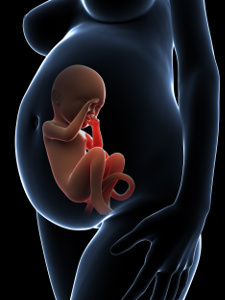 During pregnancy, the unborn child needs different nutrients for proper development of its brain and nervous system. Even if the mother eats a balanced diet, it can be difficult to get enough selenium for a number of reasons. In a new Italian animal study that is published in Nutrients, scientists have looked closer at selenium’s role during pregnancy and lactation. They observed that even minor selenium deficiencies can have a negative effect on the offspring’s brain development and behavior. This study supports earlier human studies showing how vital it is for the mother to get plenty of selenium during pregnancy and breastfeeding.
During pregnancy, the unborn child needs different nutrients for proper development of its brain and nervous system. Even if the mother eats a balanced diet, it can be difficult to get enough selenium for a number of reasons. In a new Italian animal study that is published in Nutrients, scientists have looked closer at selenium’s role during pregnancy and lactation. They observed that even minor selenium deficiencies can have a negative effect on the offspring’s brain development and behavior. This study supports earlier human studies showing how vital it is for the mother to get plenty of selenium during pregnancy and breastfeeding.
 It is important for the health of the unborn child that the expecting mother keeps her vitamin D levels high during her entire pregnancy. According to a study from Southampton University, vitamin D supplementation is less effective, if a pregnant woman starts with low levels of vitamin D in the early stage of her pregnancy, has major and sudden weight gain, and gives birth during winter.
It is important for the health of the unborn child that the expecting mother keeps her vitamin D levels high during her entire pregnancy. According to a study from Southampton University, vitamin D supplementation is less effective, if a pregnant woman starts with low levels of vitamin D in the early stage of her pregnancy, has major and sudden weight gain, and gives birth during winter.
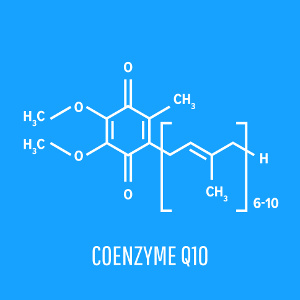 Q10 has a key role in the cellular energy turnover and also serves as an antioxidant that protects the body against oxidative stress. Disruptions in the energy-producing mitochondria in cells and oxidative stress may also be involved in different types of hormone disturbances that affect the thyroid gland, pancreas, sex glands, pituitary gland, and the adrenal glands. In a new review article that is published in Antioxidants, scientists look closer at Q10’s role with particular focus on hyperthyroidism, type 2 diabetes, and poor sperm quality, all of which can be corrected through supplementation.
Q10 has a key role in the cellular energy turnover and also serves as an antioxidant that protects the body against oxidative stress. Disruptions in the energy-producing mitochondria in cells and oxidative stress may also be involved in different types of hormone disturbances that affect the thyroid gland, pancreas, sex glands, pituitary gland, and the adrenal glands. In a new review article that is published in Antioxidants, scientists look closer at Q10’s role with particular focus on hyperthyroidism, type 2 diabetes, and poor sperm quality, all of which can be corrected through supplementation.
 An international team of researchers has just completed a huge study of the possible link between maternal DNA, selenium deficiency, and preterm labor. Earlier studies have shown that women with low blood selenium have an increased risk of preterm birth and that selenium supplementation may lower that risk. A problem in that respect is that climate changes and soil depletion may increase the risk of selenium deficiencies, especially in Europe.
An international team of researchers has just completed a huge study of the possible link between maternal DNA, selenium deficiency, and preterm labor. Earlier studies have shown that women with low blood selenium have an increased risk of preterm birth and that selenium supplementation may lower that risk. A problem in that respect is that climate changes and soil depletion may increase the risk of selenium deficiencies, especially in Europe.
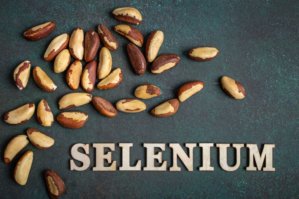 Lack of selenium, an essential trace element, may cause thyroid disorders, cardiovascular disease, virus infections, AIDS, infertility, neurological disturbances, and cancer. An estimated one billion people worldwide are selenium-deficient. This is mainly a result of nutrient-depleted soil, which is a real problem in places like Europe. For decades, scientists have been warning about this problem, and a lot suggests that we need more than the officially recommended intake to protect ourselves effectively against disease, according to a review article published in StatPearls.
Lack of selenium, an essential trace element, may cause thyroid disorders, cardiovascular disease, virus infections, AIDS, infertility, neurological disturbances, and cancer. An estimated one billion people worldwide are selenium-deficient. This is mainly a result of nutrient-depleted soil, which is a real problem in places like Europe. For decades, scientists have been warning about this problem, and a lot suggests that we need more than the officially recommended intake to protect ourselves effectively against disease, according to a review article published in StatPearls.
 Involuntary childlessness has become increasingly common. Many women find themselves in a race against time, and their biological clock keeps ticking louder and louder. Fertility therapies, miscarriages, preeclampsia, and other complications during pregnancy contribute to the physical and emotional burden. In a new Australian study that is published in Nutrients, the authors write about selenium and zinc and how these nutrients play an important role in fertility and a healthy pregnancy. They also address the problems with widespread selenium deficiency and point out that environmental toxins like mercury deplete levels of vital selenium-containing proteins in the body. The scientists point to supplements for fighting deficiencies, just like folic acid and iron are routinely recommended to pregnant women. It pays off to choose selenium yeast with multiple organic selenium compounds and organic zinc to help improve the bioavailability and utilization of the nutrients.
Involuntary childlessness has become increasingly common. Many women find themselves in a race against time, and their biological clock keeps ticking louder and louder. Fertility therapies, miscarriages, preeclampsia, and other complications during pregnancy contribute to the physical and emotional burden. In a new Australian study that is published in Nutrients, the authors write about selenium and zinc and how these nutrients play an important role in fertility and a healthy pregnancy. They also address the problems with widespread selenium deficiency and point out that environmental toxins like mercury deplete levels of vital selenium-containing proteins in the body. The scientists point to supplements for fighting deficiencies, just like folic acid and iron are routinely recommended to pregnant women. It pays off to choose selenium yeast with multiple organic selenium compounds and organic zinc to help improve the bioavailability and utilization of the nutrients.
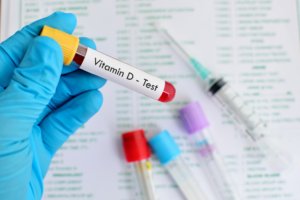 There are countless reasons why an expecting mother must make sure to get plenty of vitamin D to support the health of her child. Neonates that lack vitamin D are 44% more likely to develop schizophrenia later in life compared with neonates that do not have a vitamin D deficiency. This was demonstrated by Danish and Australian researchers in a recent study. This vital knowledge may help prevent schizophrenia in the future, and the scientists therefore recommend more focus on the importance of having adequate vitamin D levels during pregnancy.
There are countless reasons why an expecting mother must make sure to get plenty of vitamin D to support the health of her child. Neonates that lack vitamin D are 44% more likely to develop schizophrenia later in life compared with neonates that do not have a vitamin D deficiency. This was demonstrated by Danish and Australian researchers in a recent study. This vital knowledge may help prevent schizophrenia in the future, and the scientists therefore recommend more focus on the importance of having adequate vitamin D levels during pregnancy.
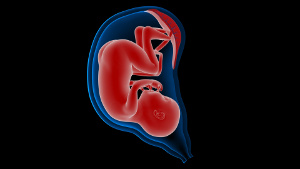 Vitamin D is of vital importance to the unborn child’s development of teeth, bones, immune defense, and various other things. The fetus is highly dependent on the mother’s vitamin D levels and that the nutrient can be transferred to the fetus and activated. A team of scientists has looked closer at the placenta and its role in helping the fetus utilize vitamin D. They hope their work can contribute to healthier pregnancies in the future.
Vitamin D is of vital importance to the unborn child’s development of teeth, bones, immune defense, and various other things. The fetus is highly dependent on the mother’s vitamin D levels and that the nutrient can be transferred to the fetus and activated. A team of scientists has looked closer at the placenta and its role in helping the fetus utilize vitamin D. They hope their work can contribute to healthier pregnancies in the future.
 A groundbreaking new Australian study shows that something as simple as a vitamin B3 supplement can prevent miscarriages and congenital defects of the heart and other organs. This is because the nutrient is involved in the body’s production of NAD, a molecule of vital importance to fetal development. Because vitamin B3 deficiencies are common, it is important to have increased focus on the vitamin, especially in connection with pregnancy.
A groundbreaking new Australian study shows that something as simple as a vitamin B3 supplement can prevent miscarriages and congenital defects of the heart and other organs. This is because the nutrient is involved in the body’s production of NAD, a molecule of vital importance to fetal development. Because vitamin B3 deficiencies are common, it is important to have increased focus on the vitamin, especially in connection with pregnancy.
 In May 2017, new data linking vitamin D and fertility was presented at the European Congress of Endocrinology (ECE) in Lisbon. The new findings contribute to our understanding of vitamin D’s impact on male testosterone levels and of our knowledge about whether vitamin D supplements may actually improve fertility in both sexes. Involuntary infertility, a widespread problem, may be a result of many factors, but if the reason is a vitamin D deficiency, it is easy to treat with increased exposure to sunlight and the use of supplements to keep vitamin D levels optimal all year round.
In May 2017, new data linking vitamin D and fertility was presented at the European Congress of Endocrinology (ECE) in Lisbon. The new findings contribute to our understanding of vitamin D’s impact on male testosterone levels and of our knowledge about whether vitamin D supplements may actually improve fertility in both sexes. Involuntary infertility, a widespread problem, may be a result of many factors, but if the reason is a vitamin D deficiency, it is easy to treat with increased exposure to sunlight and the use of supplements to keep vitamin D levels optimal all year round.
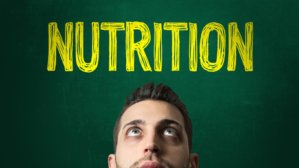 Large population studies of adults and their diet habits often tend to overlook certain groups such as younger adults. A British study therefore took a closer look at eating habits of adults in their twenties, thirties, forties, and fifties. It revealed a widespread lack of B vitamins, magnesium, potassium, iodine, zinc, and selenium. Being deficient in these essential nutrients can harm your fertility and increase your risk of different diseases, while speeding up concealed ageing processes such as loss of cognition and bone mass.
Large population studies of adults and their diet habits often tend to overlook certain groups such as younger adults. A British study therefore took a closer look at eating habits of adults in their twenties, thirties, forties, and fifties. It revealed a widespread lack of B vitamins, magnesium, potassium, iodine, zinc, and selenium. Being deficient in these essential nutrients can harm your fertility and increase your risk of different diseases, while speeding up concealed ageing processes such as loss of cognition and bone mass.
- here is a check list of typical signs and diseases
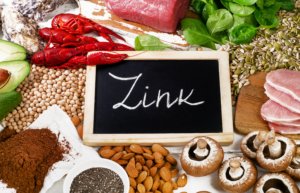 An estimated two billion people worldwide lack zinc. The essential trace element is involved in more than 1,000 different enzyme processes, besides being a powerful antioxidant that protects the body’s cells. Even minor zinc deficiencies can lead to impaired digestion, infections, skin problems, fatigue, impaired fertility, and DNA damage. Such deficiencies can eventually increase the risk of cancer and other diseases. People with unhealthy diets, vegetarians, vegans, older people, and pregnant and breastfeeding women are at particular risk of lacking zinc. Even if your diet provides sufficient amounts of zinc, different factors can affect the uptake and utilization of the nutrient, thereby increasing your body’s actual need.
An estimated two billion people worldwide lack zinc. The essential trace element is involved in more than 1,000 different enzyme processes, besides being a powerful antioxidant that protects the body’s cells. Even minor zinc deficiencies can lead to impaired digestion, infections, skin problems, fatigue, impaired fertility, and DNA damage. Such deficiencies can eventually increase the risk of cancer and other diseases. People with unhealthy diets, vegetarians, vegans, older people, and pregnant and breastfeeding women are at particular risk of lacking zinc. Even if your diet provides sufficient amounts of zinc, different factors can affect the uptake and utilization of the nutrient, thereby increasing your body’s actual need.
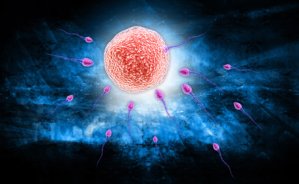 Once the sperm cell has penetrated the egg cell, sparks fly from zinc atoms in a fascinating fireworks display. This new discovery may help fertility doctors select the most best eggs for in-vitro fertilization (IVF). The discovery also has relevance for all others who wish a successful pregnancy. It all boils down to having adequate zinc stores in the body.
Once the sperm cell has penetrated the egg cell, sparks fly from zinc atoms in a fascinating fireworks display. This new discovery may help fertility doctors select the most best eggs for in-vitro fertilization (IVF). The discovery also has relevance for all others who wish a successful pregnancy. It all boils down to having adequate zinc stores in the body.
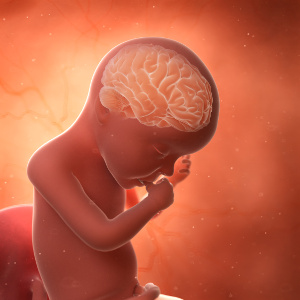 Zinc is involved in numerous enzyme processes and proteins that are of importance to fertility and pregnancy. The nutrient also plays a role in fetal brain development and the child’s health later in life, according to a review article that is published in the scientific journal, Nutrients. The authors address the fact that zinc deficiencies are rather common and account for around 20 per cent of infant deaths, typically around the time of birth. It is therefore important to get plenty of zinc throughout life – especially for women before, during, and after pregnancy and while they breastfeed.
Zinc is involved in numerous enzyme processes and proteins that are of importance to fertility and pregnancy. The nutrient also plays a role in fetal brain development and the child’s health later in life, according to a review article that is published in the scientific journal, Nutrients. The authors address the fact that zinc deficiencies are rather common and account for around 20 per cent of infant deaths, typically around the time of birth. It is therefore important to get plenty of zinc throughout life – especially for women before, during, and after pregnancy and while they breastfeed.
 A new British study that is published in British Journal of Nutrition shows that getting too little vitamin D during pregnancy has a negative effect on the social development and motor skills of the toddler. Vitamin D is believed to play a role in brain development. It is vital for the pregnant mother to pay careful attention to getting enough vitamin D all year round, as our modern lifestyle with indoor activities, our frequent use of sunscreen with high sun factor, being overweight, and having dark skin contribute to the widespread deficiency of this nutrient.
A new British study that is published in British Journal of Nutrition shows that getting too little vitamin D during pregnancy has a negative effect on the social development and motor skills of the toddler. Vitamin D is believed to play a role in brain development. It is vital for the pregnant mother to pay careful attention to getting enough vitamin D all year round, as our modern lifestyle with indoor activities, our frequent use of sunscreen with high sun factor, being overweight, and having dark skin contribute to the widespread deficiency of this nutrient.











 Impaired sperm quality if one of the major reasons for involuntary infertility. Studies show that oxidative stress, an imbalance between harmful free radicals and protective antioxidants, causes damage to sperm cells. In a review article that is published in Reproductive Sciences, a group of researchers look closer at different molecular mechanisms and how vitamins C, E, selenium, zinc, and coenzyme Q10 plus other antioxidants protect the vulnerable sperm cells.
Impaired sperm quality if one of the major reasons for involuntary infertility. Studies show that oxidative stress, an imbalance between harmful free radicals and protective antioxidants, causes damage to sperm cells. In a review article that is published in Reproductive Sciences, a group of researchers look closer at different molecular mechanisms and how vitamins C, E, selenium, zinc, and coenzyme Q10 plus other antioxidants protect the vulnerable sperm cells. After giving birth, the mother’s adaptability and resources are put to the test. Also, the mother’s “baby brain” tends to take over. Unfortunately, many new mothers get the baby blues, and around 10 percent develop an actual postpartum depression that requires immediate attention. It is important to focus on the underlying causes that include the course of the delivery plus hormonal, biological, social, and emotional changes.
After giving birth, the mother’s adaptability and resources are put to the test. Also, the mother’s “baby brain” tends to take over. Unfortunately, many new mothers get the baby blues, and around 10 percent develop an actual postpartum depression that requires immediate attention. It is important to focus on the underlying causes that include the course of the delivery plus hormonal, biological, social, and emotional changes. There really is no need to have an upper safe intake limit for
There really is no need to have an upper safe intake limit for  A new study links thyroid disorders to female infertility. At the same time, it is known that selenium, an essential micronutrient, is required for normal functioning of the thyroid gland. Modern diets are depleted of selenium and the question is: Could selenium supplements be a good place to begin for infertile couples before embarking on expensive IVF therapy?
A new study links thyroid disorders to female infertility. At the same time, it is known that selenium, an essential micronutrient, is required for normal functioning of the thyroid gland. Modern diets are depleted of selenium and the question is: Could selenium supplements be a good place to begin for infertile couples before embarking on expensive IVF therapy? There are several reasons why pregnant women have an increased need for folic acid. Overweight women should even pay special attention, as
There are several reasons why pregnant women have an increased need for folic acid. Overweight women should even pay special attention, as 
 Lack of
Lack of  A new study reveals that children of mothers’ who lacked
A new study reveals that children of mothers’ who lacked It is well established that
It is well established that  Premature infants have a higher risk of development disturbances. On a global scale, preterm delivery is the leading cause of death among children younger than five years of age. Pregnant women, who increase their intake of
Premature infants have a higher risk of development disturbances. On a global scale, preterm delivery is the leading cause of death among children younger than five years of age. Pregnant women, who increase their intake of  Overweight or obesity during pregnancy is linked to low
Overweight or obesity during pregnancy is linked to low  Polycystic ovary syndrome (PCOS) is the leading cause of infertility and hormone disturbances in women of childbearing age. The condition is often a result of insulin resistance, an imbalance in the sugar metabolism that is typically accompanied by fatigue, abdominal obesity (apple-shaped body), overweight, and an increased risk of cardiovascular disease and type-2 diabetes. It makes perfect sense to stick with a blood sugar-stabilizing diet and to include a
Polycystic ovary syndrome (PCOS) is the leading cause of infertility and hormone disturbances in women of childbearing age. The condition is often a result of insulin resistance, an imbalance in the sugar metabolism that is typically accompanied by fatigue, abdominal obesity (apple-shaped body), overweight, and an increased risk of cardiovascular disease and type-2 diabetes. It makes perfect sense to stick with a blood sugar-stabilizing diet and to include a  Impaired fertility and involuntary childlessness are common in the Nordic countries and there can be a number of reasons for these serious problems. However, according to a large Finnish study that is published in Nutrients,
Impaired fertility and involuntary childlessness are common in the Nordic countries and there can be a number of reasons for these serious problems. However, according to a large Finnish study that is published in Nutrients,  Approximately one in seven couple is childless. Although there can be many underlying causes, poor sperm quality is an increasing problem. It may be caused by a lack of certain nutrients and exposure to different environmental factors, but, fortunately, it possible to improve sperm quality and increase the chances of conception by means of relevant dietary adjustments and the use of specific supplements. New research shows that epigenetic factors (factors that affect the environment of the sperm cell) determine sperm health and are therefore crucial for activating the genes of the sperm cell so the fetus can develop.
Approximately one in seven couple is childless. Although there can be many underlying causes, poor sperm quality is an increasing problem. It may be caused by a lack of certain nutrients and exposure to different environmental factors, but, fortunately, it possible to improve sperm quality and increase the chances of conception by means of relevant dietary adjustments and the use of specific supplements. New research shows that epigenetic factors (factors that affect the environment of the sperm cell) determine sperm health and are therefore crucial for activating the genes of the sperm cell so the fetus can develop. Pregnant women are advised not to smoke, as this may harm the unborn baby. However, not all pregnant smokers are able to quit their habit. A new American study shows that
Pregnant women are advised not to smoke, as this may harm the unborn baby. However, not all pregnant smokers are able to quit their habit. A new American study shows that  Yet another example of how vitamin D affects more than strong bones. A study has shown that babies whose mothers took vitamin D during pregnancy had a stronger hand grip and greater muscle mass. This improved muscle strength may also be able to improve their health later in life.
Yet another example of how vitamin D affects more than strong bones. A study has shown that babies whose mothers took vitamin D during pregnancy had a stronger hand grip and greater muscle mass. This improved muscle strength may also be able to improve their health later in life. During pregnancy, the unborn child needs different nutrients for proper development of its brain and nervous system. Even if the mother eats a balanced diet, it can be difficult to get enough
During pregnancy, the unborn child needs different nutrients for proper development of its brain and nervous system. Even if the mother eats a balanced diet, it can be difficult to get enough  It is important for the health of the unborn child that the expecting mother keeps her
It is important for the health of the unborn child that the expecting mother keeps her 
 An international team of researchers has just completed a huge study of the possible link between maternal DNA,
An international team of researchers has just completed a huge study of the possible link between maternal DNA,  Lack of
Lack of  Involuntary childlessness has become increasingly common. Many women find themselves in a race against time, and their biological clock keeps ticking louder and louder. Fertility therapies, miscarriages, preeclampsia, and other complications during pregnancy contribute to the physical and emotional burden. In a new Australian study that is published in Nutrients, the authors write about
Involuntary childlessness has become increasingly common. Many women find themselves in a race against time, and their biological clock keeps ticking louder and louder. Fertility therapies, miscarriages, preeclampsia, and other complications during pregnancy contribute to the physical and emotional burden. In a new Australian study that is published in Nutrients, the authors write about  There are countless reasons why an expecting mother must make sure to get plenty of
There are countless reasons why an expecting mother must make sure to get plenty of 
 A groundbreaking new Australian study shows that something as simple as a
A groundbreaking new Australian study shows that something as simple as a  In May 2017, new data linking
In May 2017, new data linking  Large population studies of adults and their diet habits often tend to overlook certain groups such as younger adults. A British study therefore took a closer look at eating habits of adults in their twenties, thirties, forties, and fifties. It revealed a widespread lack of B vitamins, magnesium, potassium, iodine, zinc, and selenium. Being deficient in these essential nutrients can harm your fertility and increase your risk of different diseases, while speeding up concealed ageing processes such as loss of cognition and bone mass.
Large population studies of adults and their diet habits often tend to overlook certain groups such as younger adults. A British study therefore took a closer look at eating habits of adults in their twenties, thirties, forties, and fifties. It revealed a widespread lack of B vitamins, magnesium, potassium, iodine, zinc, and selenium. Being deficient in these essential nutrients can harm your fertility and increase your risk of different diseases, while speeding up concealed ageing processes such as loss of cognition and bone mass. An estimated two billion people worldwide lack
An estimated two billion people worldwide lack  Once the sperm cell has penetrated the egg cell, sparks fly from zinc atoms in a fascinating fireworks display. This new discovery may help fertility doctors select the most best eggs for in-vitro fertilization (IVF). The discovery also has relevance for all others who wish a successful pregnancy. It all boils down to having adequate zinc stores in the body.
Once the sperm cell has penetrated the egg cell, sparks fly from zinc atoms in a fascinating fireworks display. This new discovery may help fertility doctors select the most best eggs for in-vitro fertilization (IVF). The discovery also has relevance for all others who wish a successful pregnancy. It all boils down to having adequate zinc stores in the body.
 "After about one week of taking the Q10 supplement I could feel a huge difference," says 23-year old Alan Piccini, who has been suffering from extreme fatigue and muscle aches ever since he was a child.
"After about one week of taking the Q10 supplement I could feel a huge difference," says 23-year old Alan Piccini, who has been suffering from extreme fatigue and muscle aches ever since he was a child. “Taking capsules with co-enzyme Q10 has freed me of the severe side effects of my cholesterol lowering medicine,” Mrs Franken explains.
“Taking capsules with co-enzyme Q10 has freed me of the severe side effects of my cholesterol lowering medicine,” Mrs Franken explains.